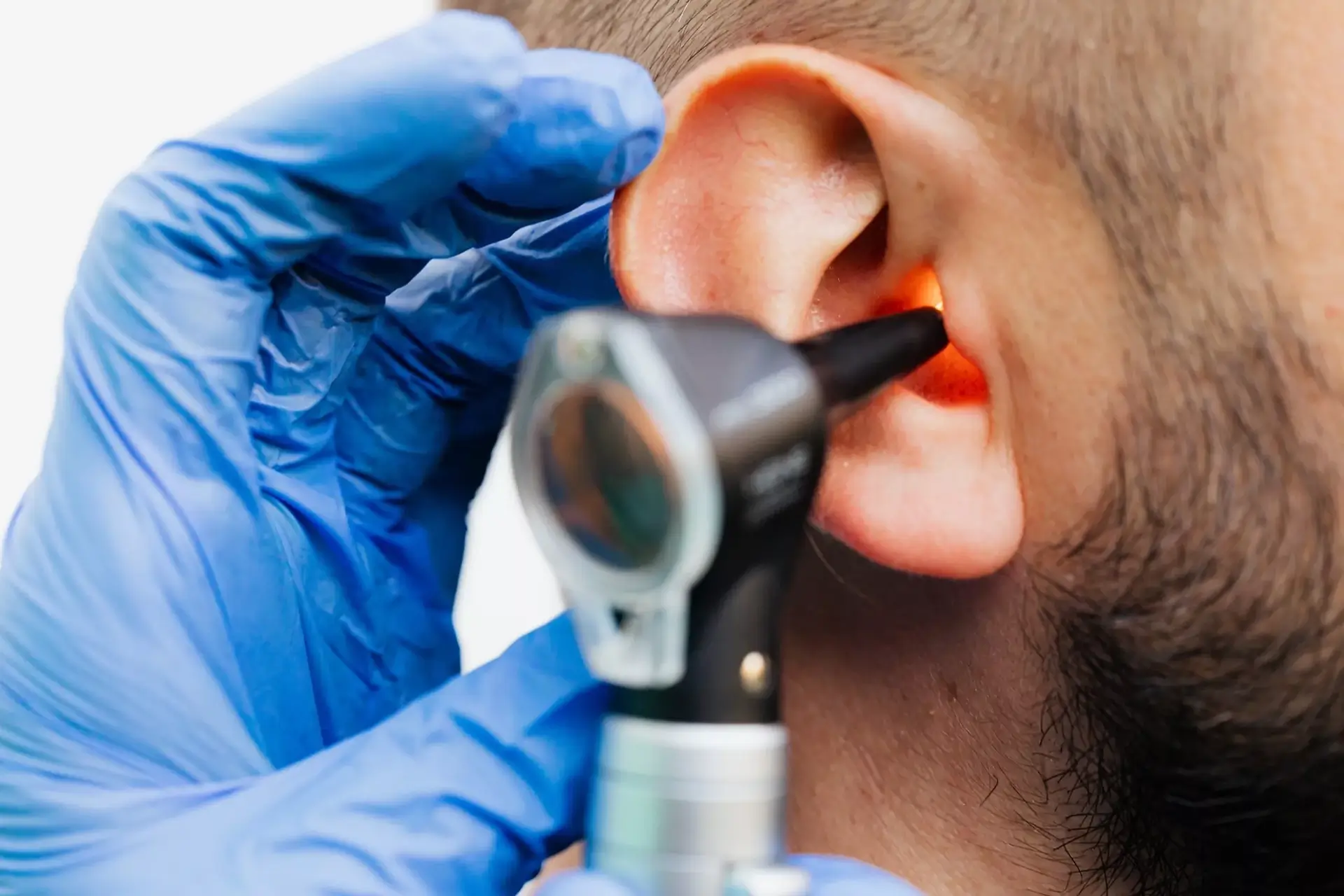Whiplash is an injury of the modern, high-speed era. The first case of whiplash was reported just 100 years ago, in a 1919 train collision, and today it is one of the most common nonfatal car crash injuries. Over a million whiplash injuries are reported in car accidents every year, and experts suspect that many more cases are unreported.
Table of Contents
ToggleSince whiplash injuries are only starting to be understood in the medical industry and vary so dramatically in severity, many of the effects remain poorly understood. In fact, many people wonder if whiplash can cause ear problems after an accident. It can, and ear problems after whiplash are very common.
Why You May Have Ear Pain or Ringing in Your Ears After a Car Accident
Whiplash is defined by a sudden and severe hyper-extension of the neck vertebrae, followed immediately by a compensating hyper-flexion in the opposite direction. As the cervical spine goes through these sudden, sharp deformations, it can pull and deform many of the smaller joints in the neck and jaw, causing a wide range of effects.
Whiplash injuries have been steadily increasing in recent years, due to the global adoption of three-point seatbelts, that stabilize the body but allow the head and neck to move during a car crash. Seatbelts are lifesaving equipment, and extremely important for automotive safety, so many drivers are lucky to escape car accidents with only whiplash to contend with.
Whiplash is extremely difficult to treat. There can be little correlation between the severity of an accident and the severity of symptoms, and symptoms can appear days or weeks after an accident. Furthermore, because whiplash can affect the muscles and connective tissue of the neck and upper back, cause symptoms in the ears or jaw, or cause headaches and neurological symptoms, it can be difficult to get a comprehensive diagnosis and treatment plan.
Approximately 10 percent of people experience ear problems after a whiplash car accident. The most common ear issues caused by whiplash are:
- Tinnitus or ringing in the ears
- Deafness or difficulty hearing
- Vertigo or balance issues
The Importance of Having Ear Pain Evaluated
Even low-speed collisions can cause whiplash pain and injuries. The effects of whiplash may not be immediately apparent but can have long-lasting health consequences. In fact, if the symptoms of whiplash are not treated effectively within the first 6 months after an accident, there is a much higher chance that they will become chronic and last for years.
In addition, tinnitus caused by trauma may be a symptom of other, more serious disorders, including eardrum perforation, ossicular chain disruption, or even heart conditions.
Because whiplash symptoms often appear hours or days after the event, it is important to be attentive to symptoms like ear pain, ringing, or balance issues after a car accident, and have them evaluated right away.
TMJ Disorders: Potential Disorders After Whiplash Car Accident
The Temporomandibular Joint is the joint that connects your jaw to your skull, and it can be strained and displaced during a whiplash injury. Because this joint is located so close to the inner ear, whiplash can cause pain and problems in both the jaw and ears.
If left untreated, people with a whiplash injury may develop “late whiplash syndrome”. Late whiplash syndrome is defined as a cluster of consistent symptoms and disabilities that occur six months or more after a motor vehicle accident. Between 14 to 42 percent of patients develop a chronic condition after a whiplash injury, with the most common symptoms being:
- Neck pain
- Headaches
- Radiating pain in the arms or between the shoulder blades
- Tingling or “pins and needles” sensations
- Transient muscle weakness
- Dizziness or vertigo
- Tinnitus
Most people eventually recover from this condition with the treatment of the symptoms, while some experience lasting loss of function and ability. The cumulative cost of whiplash injuries in the U.S. is estimated at nearly $4 billion annually, including medical costs, disability, and sick leave.
Contact Johnson Garcia for More Information
Whiplash is a difficult and controversial condition. Many people experience severe pain, disability, and disruption in their lives due to vertigo and ear problems after whiplash, while others think that these symptoms are simply invented to increase insurance settlements after a car accident.
In addition, not every medical professional will naturally associate ear pain, vertigo, tinnitus, or jaw pain with a whiplash injury. These can be divergent medical specialties, making it difficult to get comprehensive treatment.
Finally, because some whiplash symptoms may not show up right away, or may not be diagnosed correctly and linked to the accident, many people with whiplash injuries do not get the full medical treatment and compensation they deserve. Accepting an insurance settlement too early may waive your right to seek further damages later on, after the full consequences of the accident become known.
If you have been in a car accident, and are experiencing headaches, dizziness, and ear problems, contact the law firm of Johnson Garcia. We offer free consultations so you can learn more about your legal rights and options before accepting a quick settlement. We understand the unique complexities of whiplash injuries and will fight hard for your rights like we have fought for our clients for decades. Contact us today for more information.


